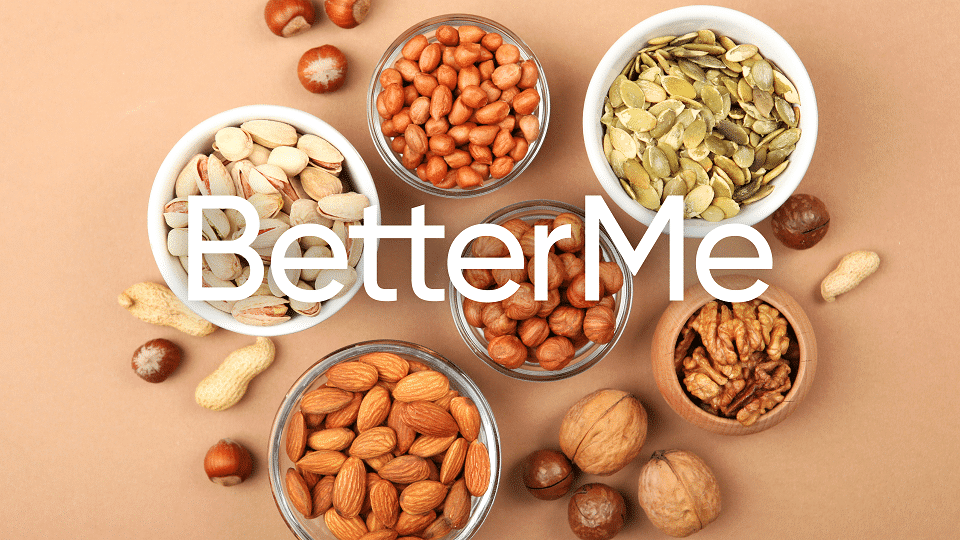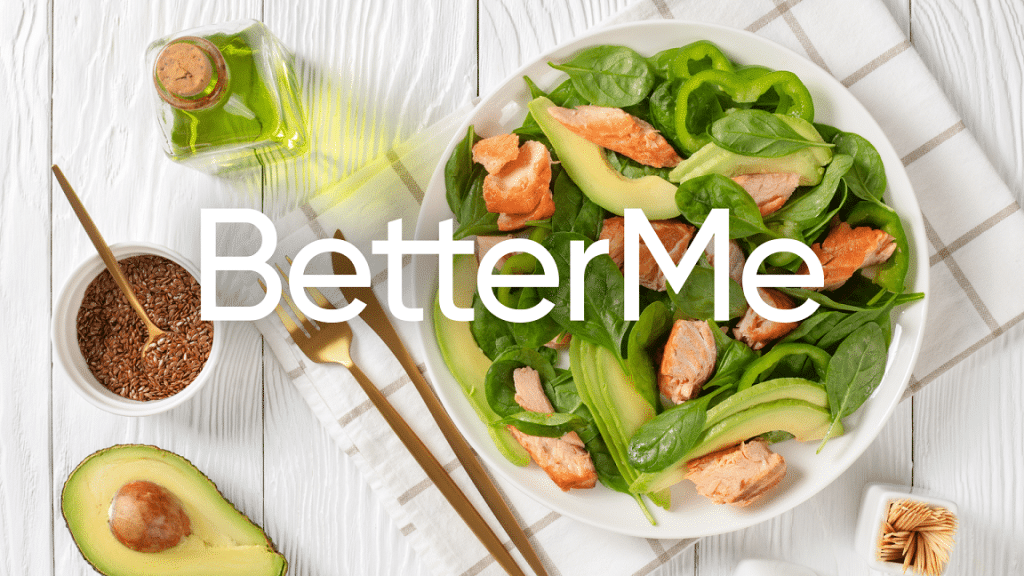To power their bodies, men need plenty of nutrients, including several vitamins. Unfortunately, it isn’t always easy to get all these nutrients from food alone. Dietary preferences, food sensitivities, food availability, and other factors can make it challenging for some men to cover their nutritional bases. This is particularly true when it comes to vitamins. While supplementation is always an option, consuming whole, nutrient-rich foods can also ensure that you meet your daily nutritional needs, and provides other benefits that supplements can’t (2). Below are the top vitamins for men, as well as their best food sources.
Vitamin D
Vitamin D is a key component of a man’s diet.
This nutrient helps the body to absorb calcium, which is essential for supporting strong bones and teeth. In addition to this function, vitamin D also supports brain health as well as cell growth throughout the body. In fact, there are more than 200 types of cells in the human body that have been shown to rely on vitamin D (2).
While supplementation and time in the sun can help to increase your vitamin D levels, you’ll also need to consume sufficient quantities through food. This is especially true for those living in areas with less sun exposure, or at certain times of the year when the sun is not as strong.
In lieu of supplementation, it’s recommended that men aim for 5-30 minutes of direct sunlight per day during the spring and summer months (1). You should also have a mixed diet that focuses on various healthy, whole foods, as those listed below will provide you with sufficient vitamin D:
- Milk
- Fatty fish such as salmon , tuna, and mackerel
- Beef liver
- Egg yolks
- Cheese
- Cereal
- Certain mushrooms
Vitamin A
Vitamin A is a powerhouse nutrient that can help men to improve their eyesight, boost immunity, and support protein development. In fact, this essential vitamin is involved in almost every aspect of bodily function. Vitamin A also plays a key role in cell communication throughout the body (6).
Maintaining sufficient levels of vitamin A is especially important for men because getting enough of this vitamin may help to reduce the risk of developing cancer, heart disease, and other chronic conditions (6).
Unfortunately, this important nutrient isn’t always easy to get from diet alone. Since its active version is typically only found in animal products, plant-based eaters may have trouble meeting their daily requirements unless they know which foods contain its precursors. Fortunately though, there are several great options that you can consume to help ensure that your vitamin A levels are sufficient.
- Organ meats
- Cod liver oil
- Dairy products such as milk, cheese, and yogurt
- Eggs
- Dark leafy greens – spinach, kale , and collard greens
- Yellow or orange vegetables such as butternut squash or carrots
- Dark leafy greens like spinach and kale
- Cantaloupe
- Mango
- Papaya
- Kiwi Fruit
- Salmon
- Milk
- Salmon, cod, and halibut liver oils
Read More: Vitamins For Energy And Tiredness: Benefits, And Which Foods To Eat
B Complex Vitamins
The vitamin B complex refers to a group of eight water-soluble vitamins that play essential roles in metabolism. These vitamins help men maintain healthy skin, nails, and hair, as well as improve nerve function. They are also essential for turning the food you eat into energy that your body can use. Because each vitamin within the B complex performs a unique role in the body, consuming all eight is necessary to ensure optimal health and wellness (7).
To get an adequate amount of these vitamins without supplementation, be sure to include several diverse food sources in your diet every day.
Vitamin B1 (Thiamine)
This vitamin is essential for carbohydrate metabolism, which provides men with the energy needed to power through their daily activities.
In addition to this metabolic function, vitamin B1 also contributes to healthy neurological function. Thiamine deficiency has been shown to lead to memory loss, muscle weakness, and brain dysfunction (7).
To get sufficient amounts of vitamin B1, consume the following whole foods:
- Rice bran
- Beef liver
- Sunflower seeds
- Lentils
- Whole grains like oats and brown rice
- Green peas
Vitamin B2 (Riboflavin)
Riboflavin, also known as Vitamin B2, helps the body to metabolize protein and carbohydrates. This vitamin is essential for healthy skin and vision, and it can also play a key role in maintaining a healthy immune system. Riboflavin deficiency has been linked to fatigue, light sensitivity, and weakened immune function (7).
There are plenty of foods that you can consume to get your daily Vitamin B2. Some of the best choices include:
- Yogurt
- Eggs
- Milk
- Green leafy vegetables like asparagus and broccoli
- Almonds
- Cashews
- Whole grains like barley and oats
BetterMe app is a foolproof way to go from zero to a weight loss hero in a safe and sustainable way! What are you waiting for? Start transforming your body now!
Vitamin B3 (Niacin)
Along with vitamin B2, Niacin is responsible for metabolizing proteins, carbohydrates, and fats. This vitamin can also reduce LDL cholesterol levels while increasing HDL cholesterol levels , which helps to improve heart health. Additionally, vitamin B3 can help men to maintain healthy skin, nails, and hair (7).
A lack of vitamin B3 has been shown to cause pellagra , which is characterized by skin lesions, digestive issues, mental impairment, confusion, and memory loss (7). To avoid this dangerous vitamin deficiency, be sure to get your daily dose of vitamin B3 from the following foods:
- Salmon
- Chicken
- Lean red meat
- Eggs (especially the yolks)
- Dairy products like milk and cheese
- Nuts like peanuts and cashews
Vitamin B5 (Pantothenic Acid)
Vitamin B5, also known as pantothenic acid, is needed for the body to produce energy. This vitamin is also linked to proper immune system function, which helps the body fight off infection and disease (7).
To avoid deficiency, be sure to get enough of this important vitamin by including these whole foods in your diet:
- Spinach
- Broccoli
- Avocado
- Potatoes
- Eggs
Vitamin B6 (Pyridoxine)
This vitamin is important for the metabolism of proteins and converting tryptophan to serotonin. Vitamin B6 has also been shown to be beneficial in maintaining healthy nerve function, as well as supporting the immune system (7).
Fruits, vegetables, beans, peas, and fortified cereals are all good sources of Vitamin B6. Some of the best choices include:
- Bananas
- Spinach
- Sweet potatoes
- Papaya
- Whole grains
Read More: Vitamins For Memory Loss: 5 Best Memory Boosters According To Science
Vitamin B9 (Folic Acid, Folate)
Vitamin B9 is needed to make new cells. It can also help men with cardiovascular health by lowering homocysteine levels. Vitamin B9 deficiency has been linked to anemia, as well as damage to the brain and nervous system (7). To get enough of this important vitamin, be sure to eat the following foods:
- Beans
- Leafy greens like spinach and kale
- Asparagus
- Mushrooms
- Lentils
Vitamin B12 (Cobalamin)
Vitamin B12 helps the body to metabolize fat and protein. Like other B vitamins, it can contribute to healthy skin, nails, and hair, and it can also help to reduce fatigue and weakness (7).
- Shellfish like clams and oysters
- Liver
- Beef
- Eggs
Vitamin C (Ascorbic Acid)
Vitamin C is important for the growth and repair of tissues in all parts of the body. It can also be beneficial for immune system function, as well as for wound healing (8).
To avoid a vitamin C deficiency (which can result in scurvy), try to eat plenty of the following foods:
- Broccoli
- Strawberries
- Bell peppers
- Guava
- Citrus fruits
Intense sweat sessions, working weight loss tips, lip-smacking recipes come in one package with the BetterMe app. And all of it is at your fingertips, start transforming your life now!
Vitamin E (Tocopherol)
Vitamin E is an antioxidant that can help protect cells from damage and supports reproductive health. For men, this vitamin can be beneficial in maintaining healthy sperm count and motility (10).
Foods rich in Vitamin E include:
- Sunflower seeds
- Almonds
- Avocado
- Asparagus
Vitamin K (Phylloquinone)
This vitamin helps the body produce blood-clotting factors, and it can also support bone health. For men, especially, Vitamin K is essential for maintaining healthy testosterone levels (5).
Leafy greens can supply your body with plenty of Vitamin K, so be sure to include at least one serving each day in your diet.
The best sources of Vitamin K are:
- Cabbage
- Broccoli
- Spinach and other leafy greens
Which Other Nutrients Do Men Need?
In addition to the vitamins listed above, men need varying quantities of minerals, especially:
Zinc
This mineral is important for the health of the prostate gland, as well as for immune system function (11). The best sources of zinc include:
- Shellfish like oysters and crabs
- Meat, liver, and pumpkin seeds (hulled)
- Beef
- Eggs
Selenium
Selenium works with Vitamin E to support immune system function. It is also important for thyroid health (4). The best food sources of selenium include:
- Brazil nuts
- Lamb
- Shrimp
Magnesium
This mineral is involved with hundreds of chemical processes in the human body. It can help fight depression, and it can also help to lower blood pressure (3). Some of the best whole food sources of magnesium include:
- Brazil nuts
- Halibut
- Spinach
- Bananas
Iron
Iron is necessary for red blood cell production, as well as contributing to the metabolism of proteins and enzymes (3). The best food sources of iron include:
- Spinach
- Beef
- Chicken
- Salmon
Calcium
Calcium is an essential mineral for supporting healthy bones and teeth (3). The best food sources of calcium include:
- Dairy products
- Collard greens
- Almonds
- Sardines
Potassium
This mineral is important for blood pressure regulation, as well as for delivering nutrients to cells (3). The best food sources of potassium include:
- Bananas
- Kale
- Mushrooms
- Okra
Should Men Take Multivitamin Supplements?
While whole foods should always be preferred over supplements, men should consider adding a multivitamin to their diet if they can’t get what they need from their diet. These supplements can provide the body with multitudes of benefits, including much-needed micronutrients and antioxidants.
Though any well-designed multivitamin should suffice, it is important to look at the ingredients list to ensure that it does not contain anything which would be harmful to men’s health.
Here are some factors to consider while choosing a multivitamin supplement for men:
Percentage Of The Daily Value
While buying a supplement that has 100% the DV may seem ideal, you must be careful to ensure you’re not exceeding the recommended amount especially if you’re on a nutrient-rich diet. To ensure you are not exceeding the daily limit, choose a supplement with a lower percentage of the DV.
Allergies
If you have specific allergies, then it is best to look for supplements that specifically state they are free from those ingredients. For example, men who are allergic to yeast should opt for a supplement without added brewer’s yeast .
Forms Of Nutrients
Multivitamin supplements come in liquid, gummies, swallowable capsules, and dissolvable tablets. It is best to choose a supplement in a form that you can easily take.
Quality Of Ingredients
Choose a product from a reputable brand. Find out what other people’s feedback has been on the product and if any side effects have been reported.
There is little to no regulation in the supplement industry, so choose a brand that undergoes voluntary third-party testing and quality control.
Take some time to read any available reviews about the product before buying it.
The Bottom Line
Men need to pay attention to their diets. A diet that is high in nutrient-rich foods will help men achieve optimal health.
If you are not able to consume enough nutrients through whole foods, then you can consider adding a multivitamin supplement to your daily routine.
Get your personalized
meal plan!
DISCLAIMER:
This article is intended for general informational purposes only and does not serve to address individual circumstances. It is not a substitute for professional advice or help and should not be relied on for making any kind of decision-making. Any action taken as a direct or indirect result of the information in this article is entirely at your own risk and is your sole responsibility.
BetterMe, its content staff, and its medical advisors accept no responsibility for inaccuracies, errors, misstatements, inconsistencies, or omissions and specifically disclaim any liability, loss or risk, personal, professional or otherwise, which may be incurred as a consequence, directly or indirectly, of the use and/or application of any content.
You should always seek the advice of your physician or other qualified health provider with any questions you may have regarding a medical condition or your specific situation. Never disregard professional medical advice or delay seeking it because of BetterMe content. If you suspect or think you may have a medical emergency, call your doctor.
SOURCES:
- Benefits of Sunlight: A Bright Spot for Human Health (2008,nih.gov)
- How Can I Eat More Nutrient-Dense Foods (2021, heart.org)
- Minerals – Diet and Health (n.d., nih.gov)
- Selenium (2021, nih.gov)
- The health benefits of vitamin K (2015, nih.gov)
- Vitamin A (2021, nih.gov)
- Vitamin B (n.d., betterhealth.vic.gov.au)
- Vitamin C (2020, harvard.edu)
- Vitamin D: The “sunshine” vitamin (2012, nih.gov)
- Vitamin E (2021, nih.gov)
- Zinc and prostatic cancer (2014, nih.gov)














